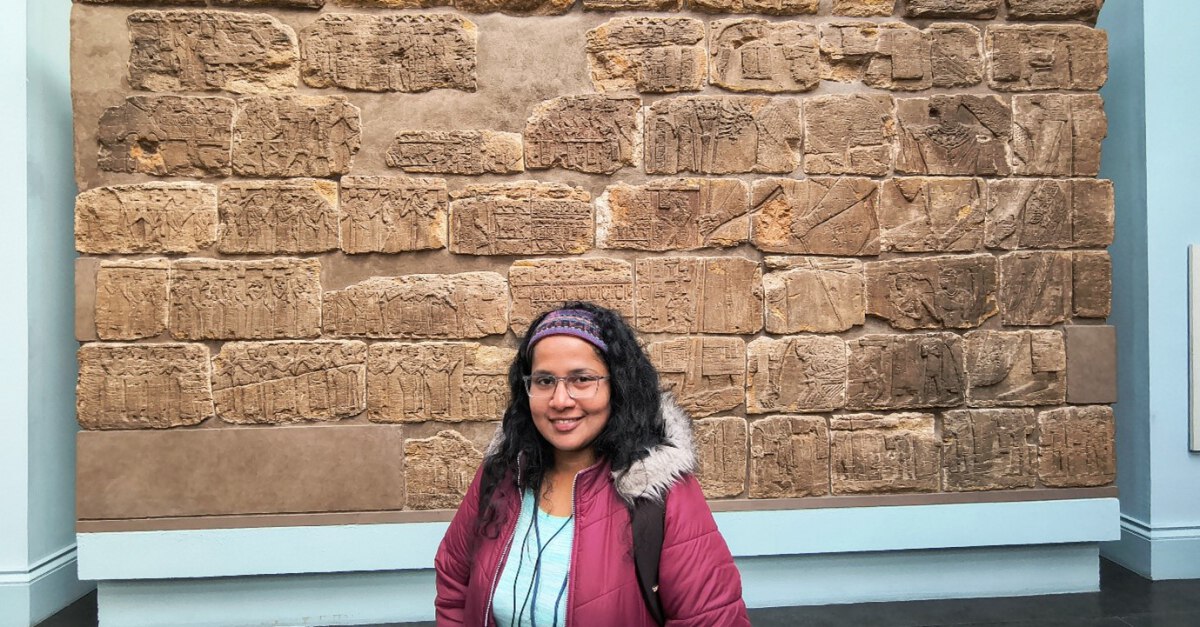The benefits of studying a Level 7 banking apprenticeship
16/10/2024

Q&A with Mac Gasiorowski
IT Governance and Control Analyst at TSB Bank
Current apprentice on the Senior Investment and Commercial Banking Professional Apprenticeship
Can you provide a brief description of your role?
I work as an IT Governance and Control Analyst at TSB Bank in a team called Cloud and Service Delivery, within the technology department. We are the team that manages everything behind our IT to ensure that everything runs smoothly. We oversee the infrastructure, data centres, networks and hardware. When something goes wrong, we are the team that steps in to manage any incidents. In banking, there are a lot of regulations, so part of my role is to ensure that we adhere to the regulations and best practices in both banking and technology.
Why did you decide to study the Senior Investment and Commercial Banking Professional Apprenticeship?
While studying towards my undergraduate degree, I took a part-time role in banking. I wanted to further my education, but I was keen to ensure my master’s degree aligned with my long-term career goals. I decided on financial services and when I came across the Cranfield course, it was a no-brainer — especially given that most of the programme can be funded through the Apprenticeship Levy.
How has the programme impacted your personal and professional development?
The programme has made me more of a strategic thinker and enhanced my knowledge of the financial services industry. I’ve also gained a better understanding of myself, the human aspects of banking and people’s behaviours.
On a personal level, I believe three things affect all our lives that we don’t learn enough about, and don’t teach people enough about, which are our health, relationships with others and money. This course has enhanced my knowledge in at least two of these areas.
How are you applying the knowledge gained from the course?
Applying the knowledge gained during the course is easy because the programme is a one-stop shop for applicable skills. The Economics of Sustainable Financial Services module helped me understand the financial services industry better.
The Financial Markets, Regulations and Ethics module helped me understand the why behind the regulations, which is important in my role. My favourite module so far is Organisational Behaviour for Managers, it has helped me to understand how we are in a professional environment, how we can change our behaviours to support others in creating a better workplace, and how to influence decisions more effectively.
How do you balance work and study?
It is difficult to strike the apprenticeship work and life balance, but I think it all starts with great managers. I’ve been fortunate enough to work with leaders who prioritise professional development. Additionally, a key to maintaining this balance is the apprenticeship agreement. I’m allocated one day a week to focus solely on my studies. The Apprenticeship Team at Cranfield and TSB Bank have also helped to make it much more manageable.
How important was the Chartered Banker Institute accreditation to you when selecting your apprenticeship degree?
It was important to me. My first professional banking education came from the Chartered Banker Institute (CBI), I completed the Professional Banking certificate and that was the foundation of my banking knowledge.
After completing that course, I wanted to continue my education path so when I discovered the Cranfield Level 7 apprenticeship course combines both the master’s degree and the Chartered Banking Diploma it was an easy choice.
The course has a sustainable banking aspect. How do you plan to apply that in your career?
To me, sustainability is about not wasting resources and in banking, whether it’s about, environmental, social or governance issues, that makes perfect sense. Whether it’s reducing your carbon footprint, responsible lending or financial inclusion. This is something that nowadays I think all financial institutions need to consider. And banking, like any other business, has always been about making money. But to make money, you need to provide value to your customers and to provide value to your customers nowadays and to maintain sustainable profits, you need to consider the sustainability of your business.
Do you have any tips for others considering this apprenticeship?
Just go for it. The practicality of the course is amazing. It’s very different to what I experienced in my undergraduate degree. I like the formal teaching that we get at Cranfield, but the peer teaching that we get is amazing. I’m one of the least experienced people in my cohort so I learn a lot from my colleagues who have experience in different areas of banking. The apprenticeship requires a lot of juggling work, personal commitments and your studies but if you’re looking to enhance your career in banking, it’s probably the best choice you can make.
Categories & Tags:
Leave a comment on this post:
You might also like…
From Sri Lanka to Cranfield: How a Commonwealth Scholarship transformed my environmental engineering journey
Hi, I’m Kavithanjali Uthayashangar and I’m here to tell you about my journey into environmental engineering. It began with a simple but powerful motivation: a desire to understand how engineering can ...
Inside the Air Transport Management MSc: Classes, assignments, and group project work
What’s it really like to study Air Transport Management at Cranfield? Adit walks us through a typical day, assignment expectations, and the excitement of hands-on group projects. This is the second of three blog ...
Using Factiva to research a company
If you’re tasked with researching a company, your first port of call might be to search Fame or EBSCO Business Source Complete. Your immediate reaction might not be to look at Factiva. However, for larger ...
How do I write a secondary reference … in the NLM style?
Secondary referencing is used when you’re reading a work which includes a quotation from another author, and you – the researcher – can’t obtain the original source. We always advise, where possible, to try to ...
Reaching new heights: How a Global Excellence Scholarship fuelled my aerospace dreams
Leaving my home in India to pursue an MSc in Aerospace Dynamics at Cranfield University was a leap of faith. Hi, I’m Oliza Kachroo and as an international student, the transition ...
How do I reference…when delivering a presentation?
Just as you cite and reference sources in written work, you should also acknowledge the sources you use or quote in oral presentations. Citing your sources in presentations provides your audience with information about the ...







